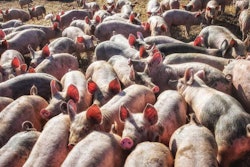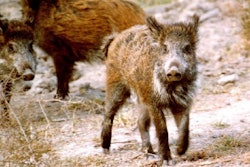
With a vaccine or cure still years away, a new research initiative is focused on finding ways to mitigate African swine fever.
A vaccine or cure for African swine fever (ASF) might represent the Holy Grail of animal ag research, but the Foundation for Food and Agriculture Research has set its sights on short-term projects its hopes will find new ways to mitigate the spread of ASF.
The foundation, in tandem with the National Pork Board, recently awarded five grants to research teams working on technologies with potential to produce actionable results for pork producers within one year of study. The partners plan to award even more grants in the future to researchers with ideas for short-term, impactful research on ASF, according to Tim Kurt, FFAR scientific program director.
The foundation has already awarded more than $500,000 for ASF research, and may pledge up to another half million on additional projects, Kurt said.
“Really what we are trying to do is provide some tools that would be useful to producers,” Kurt said. “This is one of the biggest threats to the agriculture sector that we have seen in a number of years.”
Yet research that would aid pork producers’ ability to mitigate the spread or severity of the virus — or even diagnose it efficiently — is hard to come by. It’s not even clear exactly how the virus is spreading, Kurt said. So while a vaccine or a cure would certainly prove useful to producers, Kurt said FFAR and the National Pork Board decided to focus on research that could produce short-term gains.
Projects selected in the first round of grants will focus on developing tests to for the detection of the virus, both in individual pigs, and in animal feed, which research has identified as a potential pathway to spread the virus. Early detection is key in containing outbreaks of diseases such as ASF, which persists in the environment much longer than other viruses.
Other projects
Another project will work on probes that could be suspended within a barn to detect whether pigs in a given herd have contracted the virus. This would enable farms to prove whether their herd is positive or negative in the event of an outbreak in the farm’s geographical area, Kurt said.
Another project will follow up on work already supported by FFAR grants, which evaluated the efficacy of feed additives intended to prevent viral transmission via animal feed by rendering certain viruses inert. Researchers at Kansas State University will evaluate whether the additives are effective against ASF.
The National Pork Board and FFAR continue to seek research proposals regarding disinfectants that are effective against ASF and other potential biosecurity measures, and feed additives that might boost the immune system to prevent, or at least lessen the severity of, outbreaks of ASF.
View our continuing coverage of the African swine fever outbreak.

















